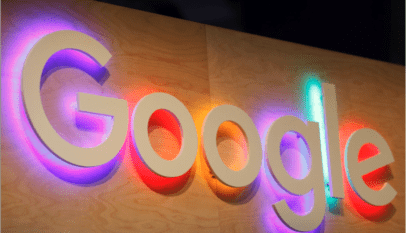
Getty Images
France’s data protection agency, the CNIL, has slapped Google and Amazon with fines for dropping tracking cookies without consent.
Google has been hit with a total of €100 million ($120 million) for dropping cookies on Google.fr and Amazon €35 million (~$42 million) for doing so on the Amazon .fr domain under the penalty notices issued today.
The regulator carried out investigations of the websites over the past year and found tracking cookies were automatically dropped when a user visited the domains in breach of the country’s Data Protection Act.
In Google’s case the CNIL has found three consent violations related to dropping non-essential cookies.
“As this type of cookies cannot be deposited without the user having expressed his consent, the restricted committee considered that the companies had not complied with the requirement provided for by article 82 of the Data Protection Act and the prior collection of the consent before the deposit of non-essential cookies,” it writes in the penalty notice [which we’ve translated from French].
Amazon was found to have made two violations, per the CNIL penalty notice.
CNIL also found that the information about the tracking cookies provided to site visitors was inadequate — noting that a banner displayed by Google did not provide specific information about the tracking cookies the Google.fr site had already dropped.
Under local French (and European) law, site users should have been clearly informed before the cookies were dropped and asked for their consent.
In Amazon’s case its French site displayed a banner informing arriving visitors that they agreed to its use of cookies. CNIL said this did not comply with transparency or consent requirements — since it was not clear to users that the tech giant was using cookies for ad tracking. Nor were users given the opportunity to consent.
The law on tracking cookie consent has been clear in Europe for years. But in October 2019 a CJEU ruling further clarified that consent must be obtained prior to storing or accessing non-essential cookies. As we reported at the time, sites that failed to ask for consent to track were risking a big fine under EU privacy laws.
Google and Amazon are now finding that out to their cost, it seems.
We’ve reached out to Amazon and Google for comment on the CNIL’s action.
Update: Google sent this statement, attributed to a spokesperson:
People who use Google expect us to respect their privacy, whether they have a Google account or not. We stand by our record of providing upfront information and clear controls, strong internal data governance, secure infrastructure, and above all, helpful products. Today’s decision under French ePrivacy laws overlooks these efforts and doesn’t account for the fact that French rules and regulatory guidance are uncertain and constantly evolving. We will continue to engage with the CNIL as we make ongoing improvements to better understand its concerns.
Update 2: Amazon has also now sent a statement:
We disagree with the CNIL’s decision. Protecting the privacy of our customers has always been a top priority for Amazon. We continuously update our privacy practices to ensure that we meet the evolving needs and expectations of customers and regulators and fully comply with all applicable laws in every country in which we operate.
Amazon added that it has updated information and choices offered on its cookie banners on its EU, U.K. and Turkish stores, in the wake of the CNIL’s investigation — pointing to its cookie preferences settings page where it said users can update their consent to cookies at any time.
In Google’s case the CNIL also found that when a user selected to deactivate personalized advertising — via an option that Google’s cookie notice presented them with — the mechanism only partially worked, as one advertising cookie remained stored on their machine and continued to process data in clear violation of the consent law.
The CNIL’s penalty for Google breaks down into…
Understanding the Dutch Approach to GDPR Fines: Why Canadian Companies Need to Pay Attention
⚠️ IMPORTANT UPDATE This article accurately describes the Dutch AP’s pioneering…














